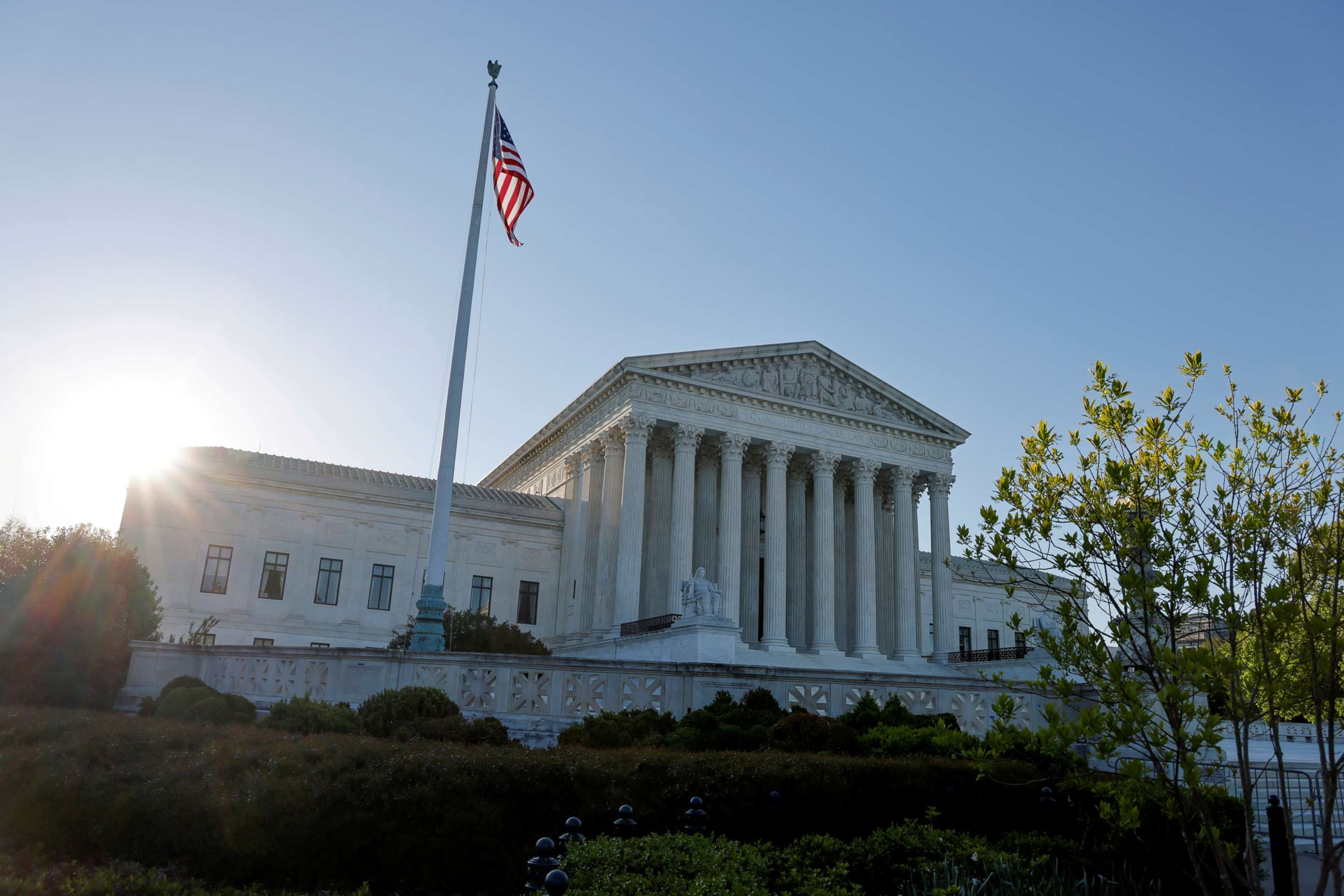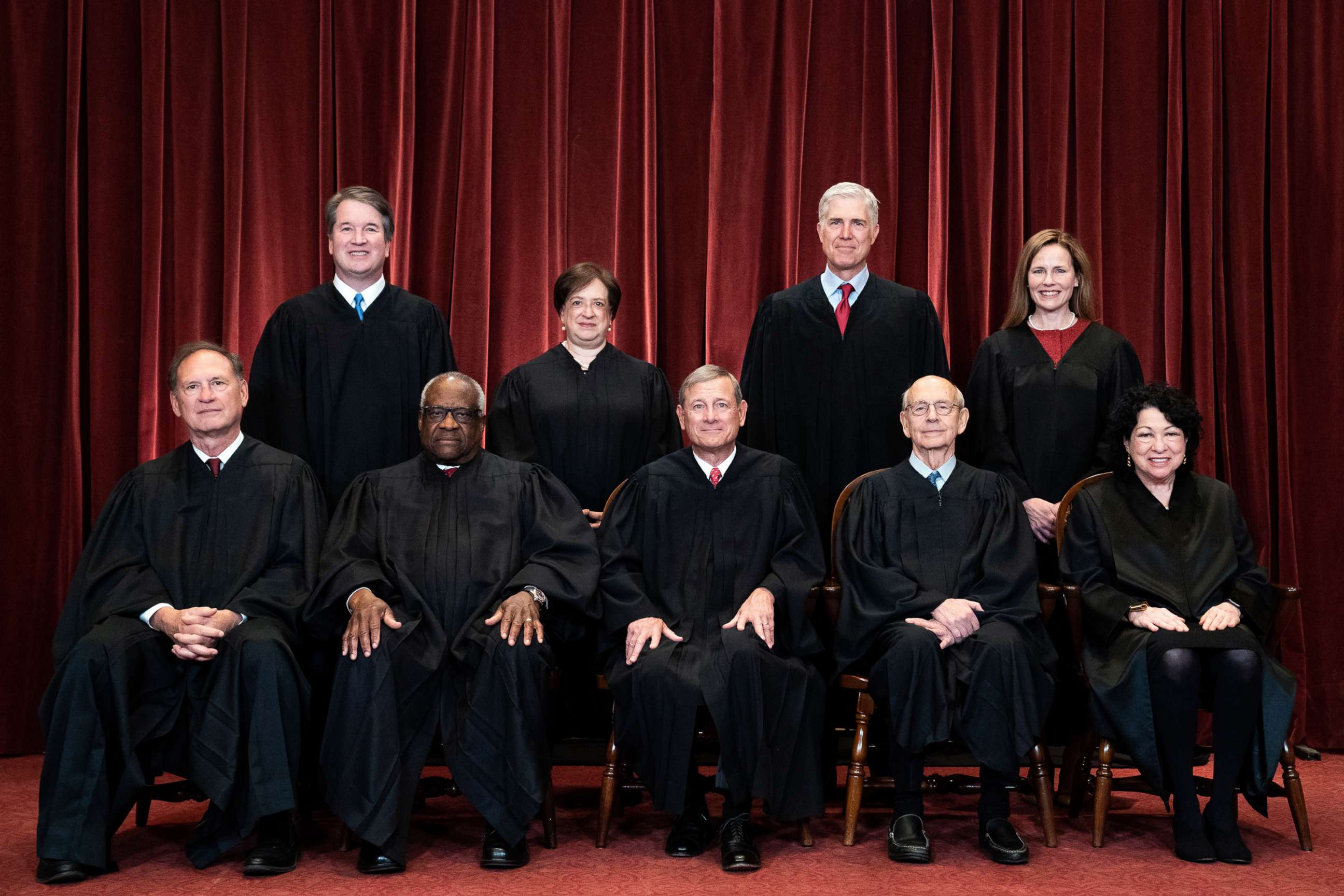Supreme Court sides with undocumented immigrant fighting deportation
An unusual alignment of justices pitted Neil Gorsuch against Brett Kavanaugh.
The Supreme Court on Thursday sided with an undocumented Guatemalan immigrant seeking to challenge his removal from the U.S. by immigration authorities.
In a 6-3 decision authored by Justice Neil Gorsuch, the court said the Justice Department was violating federal law by not providing immigrants it seeks to deport with a single, comprehensive "notice to appear" with details on the charges and scheduled court appearance.
"If men must turn square corners when they deal with the government, it cannot be too much to expect the government to turn square corners when it deals with them," Gorsuch wrote in an opinion joined by a remarkable alignment of justices -- Clarence Thomas, Stephen Breyer, Sonia Sotomayor, Elena Kagan and Amy Coney Barrett.
The "square corners" doctrine of fairness and due process Gorsuch cited was penned by Justice Oliver Wendell Holmes, who said in a 1920 decision that a private company could not challenge its tax bill. In subsequent years, lower courts invoked similar language to describe government obligations to citizens.
Justice Brett Kavanaugh penned a dissent that was joined by Chief Justice John Roberts and Justice Samuel Alito.

Agusto Niz-Chavez, who brought the case, illegally crossed the southern U.S. border in 2005 and eventually settled in Detroit, Mich. In 2013, the government initiated removal proceedings against him -- first sending a notice of the charges and later sending a second notice with the date and time of his court appearance.
The timing of the multiple notices was at the heart of the case. Under federal law, an immigrant can only appeal a removal order if they've been in the U.S. continuously for at least 10 years, and the same law says that the clock stops once a notice to appear is issued.
Niz-Chavez argued the multiple notices he received did not constitute a single notice to appear as required by law.

"At one level, today’s dispute may seem semantic, focused on a single word, a small one at that. But words are how the law constrains power. In this case, the law’s terms ensure that, when the federal government seeks a procedural advantage against an individual, it will at least supply him with a single and reasonably comprehensive statement of the nature of the proceedings against him," Gorsuch wrote.
Justice Kavanaugh, in a rare break with his fellow Trump nominee, said he strongly disagreed.
"The Court today agrees with Niz-Chavez that, in order to stop the 10-year clock, the Government must provide written notice in one document, not two. I find the Court’s conclusion rather perplexing as a matter of statutory interpretation and common sense. I therefore respectfully dissent," he wrote.
The case is a blow to the government's efforts to expedite removal of some undocumented immigrants amid a surge of illegal entries to the U.S. that have clogged court systems and strained enforcement capabilities.




